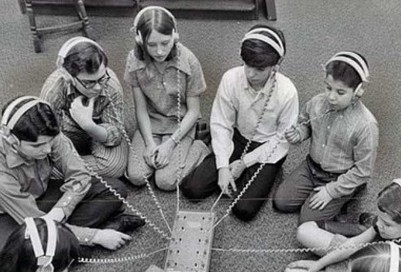It would be great if all of us could grow smarter, but smart isn’t everything. Being wise and ethical are important, too.
PayPal co-founders Peter Thiel and Elon Musk have had access to elite educations, started successful businesses and amassed vast fortunes, but in this time of Trump they don’t seem particularly enlightened. Thiel ardently supported the bigoted, unqualified sociopath to the White House, while Musk’s situational ethics in dealing with the new abnormal are particularly amoral.
At SXSW, Ray Kurzweil said he believes technology has already made us much smarter and will improve us exponentially in that manner by 2029 when the Singularity arrives. While his views of the future are too aggressive, Kurzweil’s view of today seems oddly rose-colored. Why if we’re so much brighter do we have unintelligent reality TV host in the White House? Why is there ever-deepening wealth inequality? Why are we ravaged by an opioid epidemic?
If we’re smarter now–a big if–and it’s divorced from basic morality and decency, are we any better off?
From Dyani Sabin’s Inverse piece about Kurzweil’s appearance in Austin:
The future isn’t going to look like a science fiction story with a few super intelligent A.I.s that attack us.
“That’s not realistic. We don’t have one or two A.I.s in the world. Today we have billions,” he says. And unlike Musk who imagines the rise of the A.I. as something that threatens human existence, Kurzweil says that doesn’t hold with how we interact with A.I.s today.
“What’s actually happening is they are powering all of us. They’re making us smarter. They may not yet be inside our bodies but by the 2030s we will connect our neocortex, the part of our brain where we do our thinking, to the cloud.”
This isn’t just a pipe dream to Kurzweil, who’s had reasonable luck predicting where the future is going to go. “There are people with computers in their brains today — Parkinson’s patients,” he points out. “That’s how these things start.” Following the path of steps from the technology we have now, to what will happen twenty years from now, Kurzweil says, “in the 2030’s there will be something you can take that will go inside your brain and help your memory.” And that’s just the beginning.
Uploading our brains into the cloud will allow humanity to waste less time on lower-level types of mental tasks, Kurzweil says. He’s very interested in the idea of uploading the neocortex because it’s responsible for things like art, music, and humor. By allowing our brains to connect more on that level, by melding with artificial intelligence, we will expand our ability to do these things and be better people. “Ultimately it will affect everything,” he says. “We’re going to be able to meet the physical needs of all humans. We’re going to expand our minds and exemplify these artistic qualities that we value.”•

